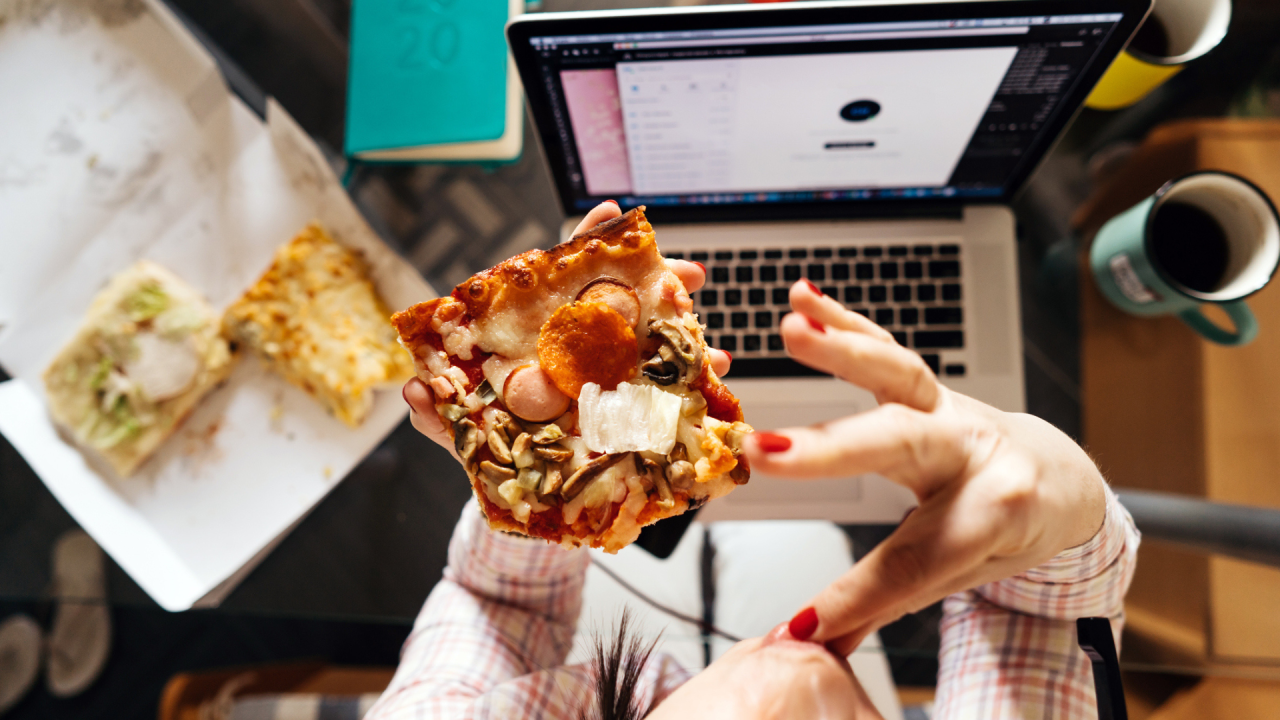
Following a recent study, experts say your constant snacking on processed foods might not be caused by a lack of self-control, but rather something far more dangerous.
Do you ever feel like you just can’t control your late-night cravings? Or find yourself daydreaming at your desk about that pint of salted caramel ice cream in your freezer just begging to be opened? If so, the latest research might just be of interest to you.
While we’ve known for quite some time that ultra-processed foods, while delicious, can usher in a host of chronic health conditions, a new study has revealed just how impactful our favourite sugary treats may be on our long-term health. Spoiler alert: it’s not good news.
In a comparative analysis of 281 studies spanning 36 countries, researchers concluded that ultra-processed foods (UPFs) can be just as addictive as hardcore substances such as cocaine, nicotine and heroin. Furthermore, experts predict more than one in ten people are addicted.
Like what you see? Sign up to our bodyandsoul.com.au newsletter for more stories like this.
Steered by Professor Ashley Gearhardt from the University of Michigan, the analysis found that a whopping 14 per cent of adults are addicted to UPFs. Gearhardt is known for creating the Yale Food Addiction Scale, applying the same criteria used by experts to diagnose substance addiction.
The scale examines UPFs against a specific list of criteria, such as ‘diminished control over consumption, a persistent desire or repeated unsuccessful attempts to quit, and withdrawal’, finding many common foods mimicked the unshakeable hold highly addictive (and illegal) substances have over us.
“The combination of refined carbohydrates and fats often found in UPFs seems to have a supra-additive effect on brain reward systems, above either macronutrient alone, which may increase the addictive potential of these foods,” write Gearhardt and the study’s other authors.
Why does junk food have us hooked?
You don’t need a string of scientific studies to prove the power of junk food. Anyone who’s taken a long-awaited bite out of a sugary doughnut can speak to the rush of dopamine felt almost immediately. But, like all good things that must eventually come to an end, that rush of dopamine is soon followed by a sudden drop-off, triggering an endless cravings cycle. The whole pattern is frighteningly similar to that of someone who is addicted to drugs, alcohol or smoking.
But unlike nicotine, the single ingredient in tobacco, experts can’t pin down the addictive nature of UPFs to one specific culprit. Instead, it is widely agreed that a combination of multiple components. Such combinations can lead to UPFs having disproportionately higher levels of both fats and carbohydrates, in contrast to naturally sourced foods that tend to be high in one or the other.
Additionally, previously published research has associated sugary and fatty foods with rewiring the brain to find healthier alternatives less appealing. Such a drastic shift in our regular cravings and diet choices can have serious long-term consequences on our health, leading to weight gain or more serious chronic conditions.
Are we all at risk of serious UFP addiction?
As author Chris van Tulleken tells the Guardian some people may be genetically predisposed to UPF addiction issues, much like other substances.
“Addictive products are not addictive for everyone,” Van Tulleken says. “Almost 90 per cent of people can try alcohol and not develop a problematic relationship; many can try cigarettes or even cocaine.”
Above all, moderation is key to managing UPF consumption. Since avoiding them entirely is hardly realistic in this day and age (plus, we all need a chocolate hit every now and then) experts recommend no more than 10 to 20 per cent of your daily caloric intake should come from processed foods.